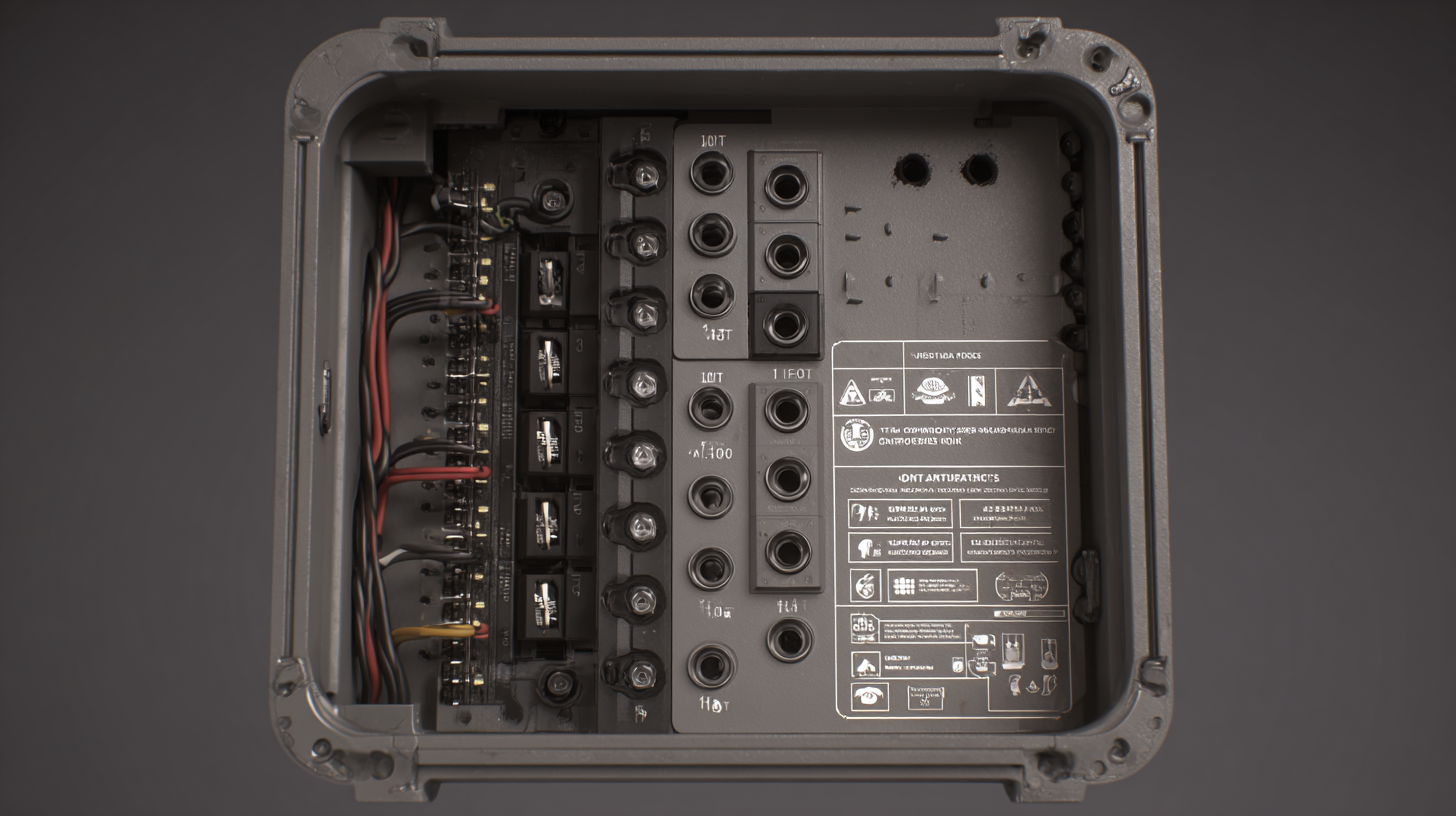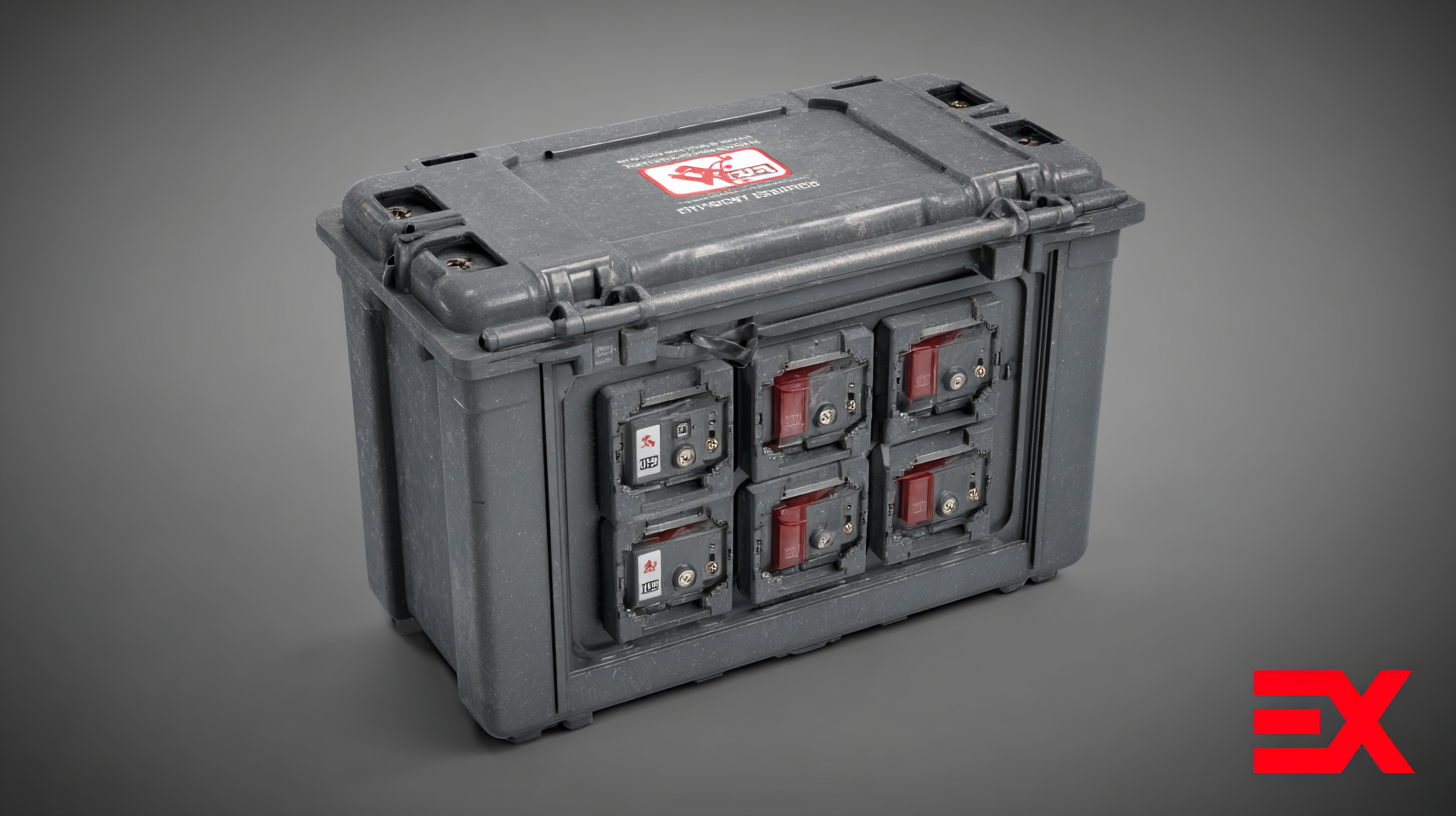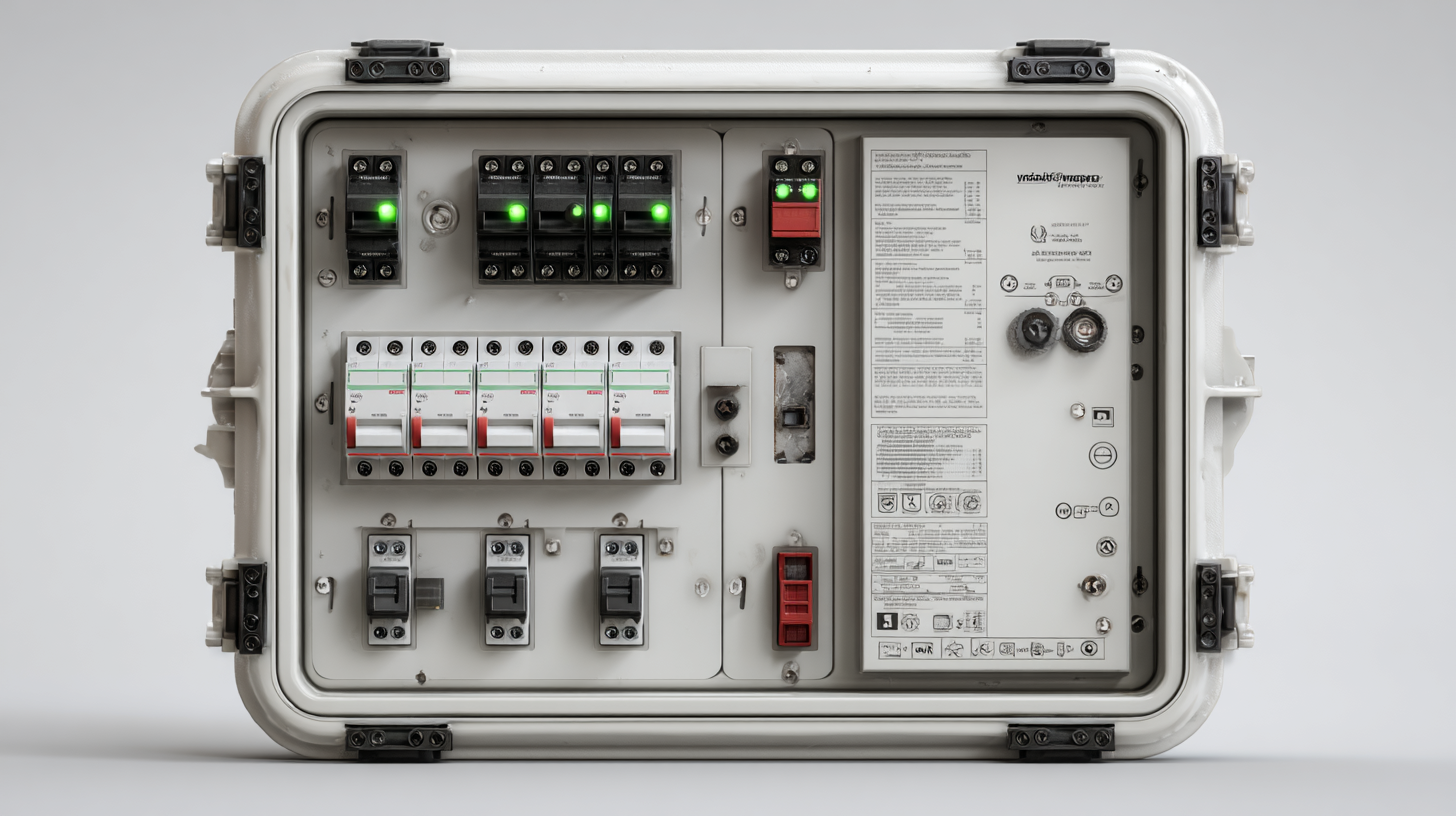
Navigating Export and Import Certifications for the Best Junction Box Solutions
In today's rapidly evolving electrical and construction industries, Junction Boxes play a pivotal role in ensuring safety and functionality in various applications. According to a report by ResearchAndMarkets, the global junction box market is projected to reach $16.2 billion by 2027, growing at a CAGR of 5.2% from 2020. This growth is primarily driven by the increasing demand for high-quality electrical infrastructure and the integration of advanced technology in electrical solutions.
 However, navigating the complexities of export and import certifications for junction boxes can be a challenging endeavor for manufacturers and suppliers alike. Understanding the necessary certifications not only helps in compliance with international standards but also enhances marketability and reliability of products in diverse markets. This blog aims to provide insights into the essential certification processes for optimal junction box solutions, ensuring industry stakeholders can efficiently manage their import and export strategies.
However, navigating the complexities of export and import certifications for junction boxes can be a challenging endeavor for manufacturers and suppliers alike. Understanding the necessary certifications not only helps in compliance with international standards but also enhances marketability and reliability of products in diverse markets. This blog aims to provide insights into the essential certification processes for optimal junction box solutions, ensuring industry stakeholders can efficiently manage their import and export strategies.
Understanding Export and Import Certification Requirements for Junction Boxes
Understanding export and import certification requirements for junction boxes is crucial for ensuring compliance and maximizing market access. According to a report by ResearchAndMarkets, the global junction box market is expected to grow at a CAGR of 4.5% from 2021 to 2026, highlighting the increasing demand for reliable electrical solutions. However, navigating through the certification requirements can be complex. Key certifications such as UL, CE, and IEC are essential for junction boxes, as they ensure that products meet safety and performance standards specific to different regions.
The implications of certification extend beyond compliance; they can significantly impact the time-to-market for junction box manufacturers. For instance, failure to obtain the necessary import certifications can lead to delays and increased costs, with studies indicating that up to 30% of product delivery timelines can be affected by regulatory compliance processes. Additionally, market-specific certifications, like the Energy Star label in the United States, can enhance product appeal and competitiveness, making it vital for manufacturers to stay informed on evolving certification standards to effectively navigate international trade challenges.
Key Certifications for Optimal Junction Box Solutions in Global Markets
In the increasingly competitive global markets, obtaining the right certifications is crucial for ensuring optimal junction box solutions. Certifications not only guarantee compliance with international standards but also instill confidence among consumers and stakeholders. Key certifications, such as those related to safety, environmental performance, and quality management, play a significant role in enhancing the market appeal of junction boxes. As industries evolve and regulations tighten, manufacturers must navigate these requirements effectively to remain competitive and meet the growing demand for reliable and efficient products.
As we look toward the future, the automotive and electrical enclosure markets are expected to see remarkable growth, further emphasizing the importance of certification in these sectors. For instance, the automotive junction box market is projected to reach significant valuations, driven by the increasing sophistication of automotive electronics. Similarly, the electrical enclosure market's robust growth underscores the necessity for adherence to stringent certifications, which can differentiate products in a crowded marketplace. Companies that prioritize certification align themselves not only with compliance but also with innovation, positioning themselves favorably in an ever-evolving landscape.
Navigating Export and Import Certifications for Junction Box Solutions
This chart displays the number of key certifications required for optimal junction box solutions in global markets, highlighting the importance of compliance with various international standards.
Navigating Regulatory Challenges in Importing and Exporting Junction Boxes
Navigating the regulatory landscape for importing and exporting junction boxes poses significant challenges for businesses in the electrical and construction sectors. Compliance with international standards, such as IEC 61439 and UL 50, is paramount as these regulations ensure the safety and reliability of electrical equipment.
According to a recent report by MarketsandMarkets, the global junction box market is expected to grow at a CAGR of 5.5% from 2021 to 2026, emphasizing the increasing demand for certified solutions across various markets. This growth presents both opportunities and hurdles, especially for companies unfamiliar with stringent certification processes.
Furthermore, the intricacies of various regional requirements can complicate the import/export process. The European Union's CE marking and the United States' NEMA standards are just a few regulatory benchmarks that junction box manufacturers must navigate. In a survey conducted by the International Electrotechnical Commission (IEC), over 45% of companies reported that compliance challenges hindered their export activities. Therefore, businesses must invest in understanding these regulatory frameworks and obtaining the necessary certifications to avoid costly delays and penalties. By proactively addressing these challenges, companies can better position themselves in a competitive and evolving market.

Best Practices for Ensuring Compliance with Junction Box Certifications
When it comes to junction box solutions, ensuring compliance with certification standards is imperative for electrical safety. Electrical works should always be performed by Licensed Electrical Workers (LEWs), as mandated by regulatory bodies. These professionals are trained to navigate the complexities of electrical installations, ensuring that junction boxes meet the required safety standards. By adhering to these best practices, stakeholders can significantly minimize risks associated with electrical hazards in residential and commercial settings.
Furthermore, regular inspections and maintenance of electrical installations are crucial. For landlords and property managers, conducting checks every five years by qualified personnel is not just a legal obligation but a critical step in safeguarding tenants. A failure to comply can lead to severe repercussions, highlighting the importance of understanding and maintaining certification standards. Awareness and strict adherence to enacted regulations will not only enhance safety but also bolster trust between stakeholders in the electrical industry.
Navigating Export and Import Certifications for the Best Junction Box Solutions - Best Practices for Ensuring Compliance with Junction Box Certifications
| Certification Type | Issuing Authority | Applicable Regions | Key Compliance Requirements | Renewal Frequency |
|---|---|---|---|---|
| UL Certification | Underwriters Laboratories (UL) | USA, Canada | Safety testing for electrical products | Annually |
| CE Marking | European Union (EU) | European Economic Area (EEA) | Compliance with EU safety, health, and environmental protection legislation | As required |
| RoHS Compliance | European Union (EU) | European Economic Area (EEA) | Restriction of hazardous substances in electrical and electronic equipment | As required |
| ISO 9001 | International Organization for Standardization (ISO) | Worldwide | Quality management systems requirements | Every 3 years |
| PSE Certification | Ministry of Economy, Trade and Industry (METI), Japan | Japan | Safety standards for electrical appliances and materials | As required |
Exploring the Impact of Certifications on Junction Box Quality and Performance
When it comes to junction boxes, the importance of certifications cannot be overstated. Certifications act as a benchmark for quality, ensuring that the products not only meet regulatory standards but also perform reliably under various conditions. According to a recent report by MarketsandMarkets, the global junction box market is expected to reach $4.2 billion by 2025, emphasizing the growing need for high-quality and certified products in this sector. These standards, such as UL (Underwriters Laboratories) and IEC (International Electrotechnical Commission) certifications, signify that the junction boxes have undergone rigorous testing to verify their durability, safety, and operational efficiency.

Moreover, the impact of certifications extends beyond compliance. A study by Frost & Sullivan reveals that products with recognized certifications can enhance brand reputation and trust among consumers, positively influencing purchasing decisions. For instance, junction boxes with IP65 or higher ratings indicate superior protection against dust and water ingress, which is crucial for outdoor installations. The evidence suggests that investing in certified junction boxes not only assures quality and performance but also positions manufacturers and consumers for long-term success in an increasingly competitive market.